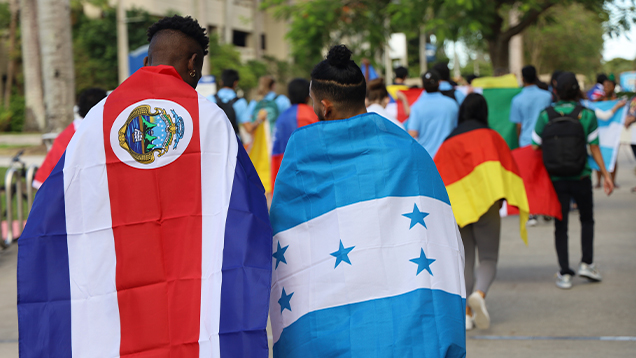Mission Statement
The mission of the Office of International Affairs (OIA) is to develop, facilitate, and oversee high quality innovative international programs, initiatives and partnerships by providing leadership, coordination, and service to students and faculty both on and off campus.
Core Values
The OIA fosters campus internationalization and serves as a central support, advisory, and information center for all students with its two divisions, the Office of International Students and Scholars (OISS) and Sharks Abroad. The OIA also collaborates with faculty and staff on campus, at our Regional Campuses, and our international instructional sites to promote and facilitate international education programs and initiatives, celebrate diversity, promote multiculturalism, and create opportunities for students that encourage the development of a global mindset.

Office of International Students & Scholars
The Office of International Students and Scholars (OISS) is your dedicated resource for immigration guidance and support at NSU. As a division of the Office of International Affairs, we serve as a bridge between the NSU community and the U.S. Citizenship and Immigration Services (USCIS), ensuring a smooth and seamless experience for international students and scholars.
Our commitment to excellence extends beyond immigration services. We also offer a range of support programs and events, including international student orientation, international education week, networking opportunities, and more, to enhance your overall experience at NSU.
Contact Us
Phone:
(954) 262-7240 or
800-541-6682, ext. 27240
Email:
intl@nova.edu
Office Hours
Monday - Friday: 8:30 a.m. - 5:00 p.m.
Closed weekends and major holidays
Address:
Nova Southeastern University
3300 S. University Drive
Horvitz Admin. Bldg, 2nd Floor
Fort Lauderdale, FL 33328-2004

